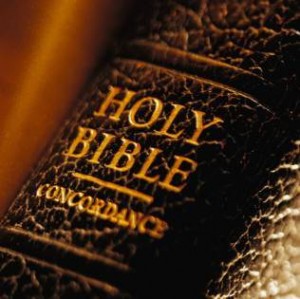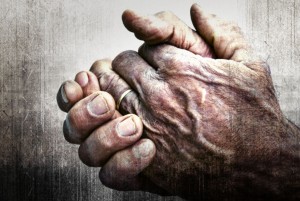“God is not bound. He is free, unfettered, unrestricted. Nothing binds God. Yet there is one thing (and only one thing) that binds God—His own nature. He is “The Lord”—Yahweh, the covenant-making, covenant-keeping God of grace. Only the self-imposed restriction of His covenant promises made to us puts any limitation upon God. Only His nature as a faithful, covenant-keeping God limits Him. Only His gracious promises, made out of no obligation on His part, restrict Him in any way. God is completely free, unfettered, unhindered, unobstructed. He can do as He pleases and all that He pleases is done. Nothing can stop His hand. Nothing can ultimately resist His will. Yet He has set His pleasure upon keeping a Bible-full of promises to His covenant people. He commits His will and all His infinite resources to fulfilling what He has spoken to you.” (Pathways to Peace, pp.101-102)
Page 84 of 115
“You therefore, my son, be strong in the grace that is in Christ Jesus.”
(2 Timothy 2:1)
“I am as strong in the grace of God as I want to be.”
(The Pastoral Epistles, p.340)
“Revival is a process; it does not just happen. From the human vantage point it may appear to descend suddenly from heaven without prior notice. Yet behind these surprising encounters with God there lies a runway He has been building in order to launch this new move of His Spirit. History reveals that where God has visited His people with genuine revival there are discernible preparations He has made.” (Revival in the Rubble, p.35)
“He died for me; he made his righteousness mine and made my sin his own; and if he made my sin his own, then I do not have it, and I am free.” (Martin Luther, quoted in The Cross He Bore, Frederick S. Leahy, p.53)
“For godly grief produces a repentance that leads to salvation without regret, whereas worldly grief produces death.” (2 Cor. 7:10)
“Remorse is sorrow for being caught; repentance is grieved over the sin. Remorse is distress over the consequences, repentance is brokenness over its rebellion against a holy God. Remorse is temporary and fleeting, but repentance is lasting and life-changing. Remorse is the embarrassed cry of an unbroken soul being caught red-handed, while repentance is the believer’s cry of horror over the darkness of his own soul. Remorse hides self-will under the cloak of contrition. When the spot light is off, self-will crawls out from under the wraps to ascend the throne once again. Real repentance, on the other hand, comes clean, slays self-will and ushers Christ back to His rightful place on the throne of our lives. Real repentance begins in a moment, but becomes an abiding attitude and orientation to life.” (Praying Through, p.149)




